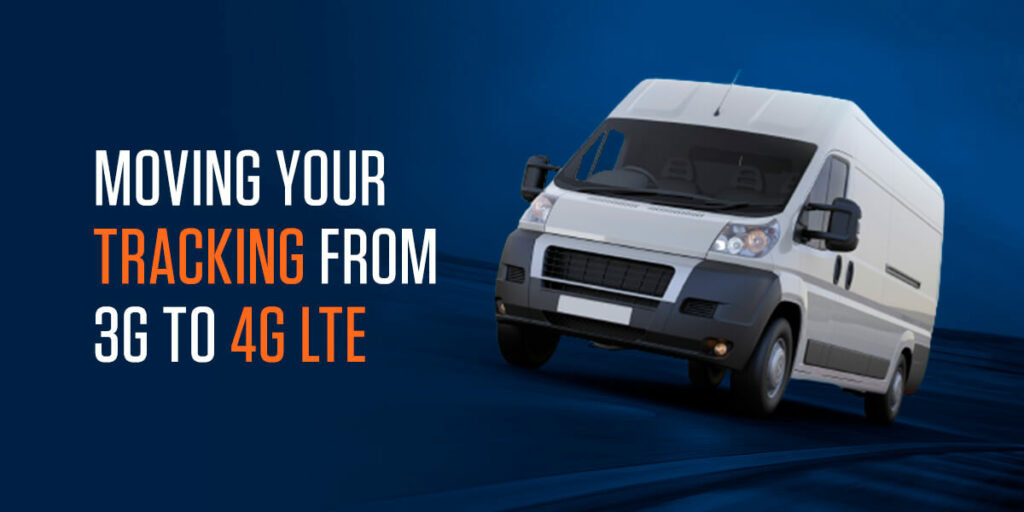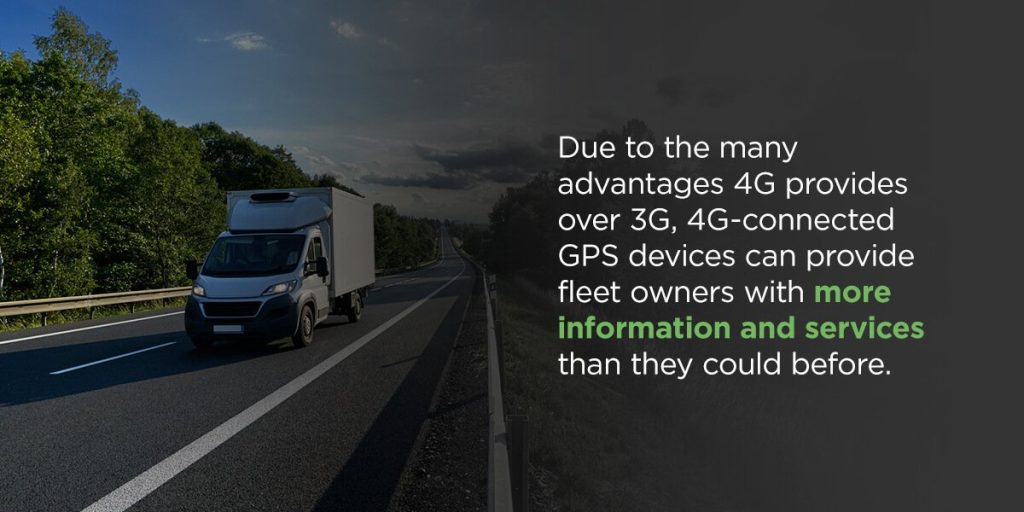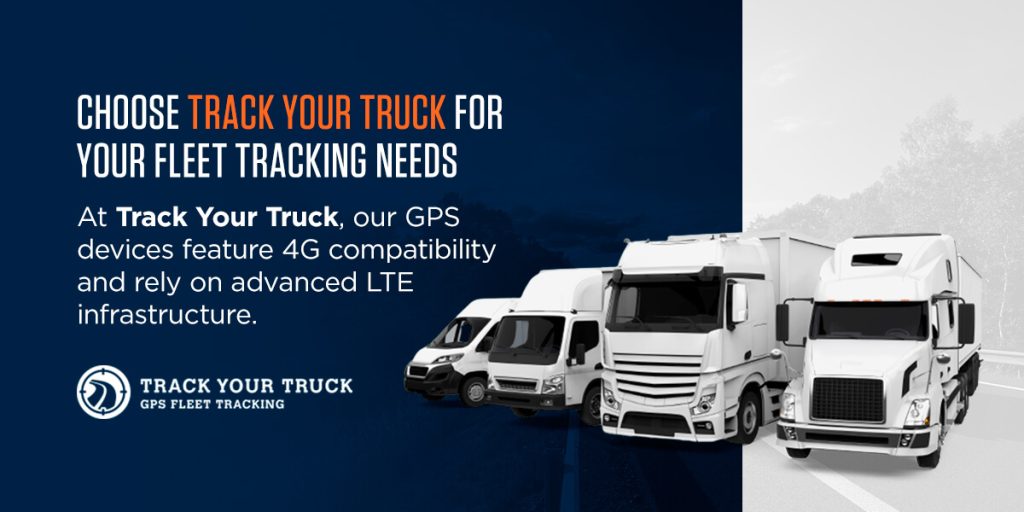

With many cellular providers rolling out 5G networks across the nation, 3G networks are quickly becoming obsolete. Many cellular providers are planning to retire their 3G networks soon, leading many trucking companies to switch to 4G Long Term Evolution (LTE) fleet tracking devices.
While some companies may want to continue to use 3G or wait to upgrade to 5G, switching to 4G tracking devices is a must for any company wanting to receive in-depth information and analytics about their fleet. Find out more about the differences between 3G and 4G LTE networks, when 3G networks will shut down and the advantages of switching to 4G.
Currently, many fleets rely on 3G and 4G LTE networks for their telematics devices and solutions. These networks allow your 3G or 4G LTE connected devices to receive and send data, giving your company greater information and analytics for your fleet. The “G” in 3G and 4G stands for generation, with 4G being the current standard generation for fleet tracking network coverage.
As the previous cellular network generation, 3G is older than 4G and isn’t as technologically advanced. The biggest difference between 3G and 4G LTE networks is their speed. While 3G allowed users to conveniently surf the web, download music and stream videos, 4G offers a significant upgrade in speed. With 4G, smartphone users can expect to stream shows in high definition and download content much faster. Accordingly, many companies are taking advantage of 4G to upgrade their fleet tracking abilities.
Due to how common 4G is now, major cellular providers, such as Verizon, AT&T, Sprint and T-Mobile, are planning to shut down their 3G coverage to save on costs and focus on developing 5G technology. Since various companies and individuals will need time to switch, these cellular providers aren’t immediately shuttering their 3G services. Instead, they have a 3G sunset period, giving 3G users time to transition to 4G LTE networks before they shut down their 3G services in 2022.
Any companies that have outfitted their fleet with 3G tracking devices will want to be aware of the planned retirement dates for 3G networks with each cellular provider. While you can expect the major cellular providers to shut down their 3G networks by 2022, each of these providers has a different date for retiring their 3G network:

Since you can expect all major carriers to shut down their 3G networks by 2022, you’ll likely want to consider making the switch now instead of waiting until forced. If you wait too long or forget to upgrade your fleet’s tracking devices, you could end up with these devices not working.
Aside from the requirement to switch soon, you can receive several benefits from changing to 4G LTE devices, including the following:
Due to the many advantages 4G provides over 3G, 4G-connected GPS devices can provide fleet owners with more information and services than they could before. For example, 4G GPS devices can collect large amounts of data to assist with remote diagnostics and monitoring. These devices also allow users to review and direct key parameters, such as a fleet’s status, movements and location, to assist with fleet performance and cost efficiency.
4G is a faster and more advanced type of network, so it can support more complicated onboard services than 3G. Since 4G devices run on this more advanced network, they’re forward-compatible, meaning they’re more likely to work with future technologies. As a result, when you select 4G-compatible devices, you set yourself up for future success.
If you’ve heard about the rollout of 5G, you may be wondering if you should simply wait to upgrade to 5G instead of 4G. However, 5G doesn’t have the infrastructure currently required to provide your fleet the support it needs to deliver consistent tracking and analytics. As of now, cellular providers are releasing 5G services in a limited manner, with many industry insiders expecting it to take years before 5G networks are developed enough to become standard.
Since 4G has the infrastructure required to deliver all the fleet tracking services you require, no matter where your trucks are in the country, it’s best to upgrade to 4G for now. By the time 3G sunsets in 2022, 5G will still be in the process of rolling out, so devices with 4G connectivity are a must-have for any company wanting to track their fleet and receive in-depth analytics.
It’s also a good idea to switch to 4G instead of waiting since it will take time for other equipment to become 5G compatible. For example, many routers, Internet of Things (IoT) devices and sensors don’t currently support 5G. It will take time until companies expend the money and resources required to make their products 5G-compatible. Since 4G-compatible devices are currently the standard among manufacturers and will likely stay that way for a few more years, it doesn’t make sense to wait for 5G.

When you want to transition to 4G, you’ll need devices with 4G LTE fleet tracking capabilities. At Track Your Truck, our GPS devices feature 4G compatibility and rely on advanced LTE infrastructure. As a result, we can help you transition from 3G to 4G with ease. Our devices are fully certified and tested, making them reliable for longer than many other fleet tracking products. With our 4G-compatible devices, you can expect to receive the most effective tracking solutions on the market today.
Browse our selection of GPS tracking devices and live vehicle-tracking devices. To learn more about how we can help you transition to 4G, request a free quote today.